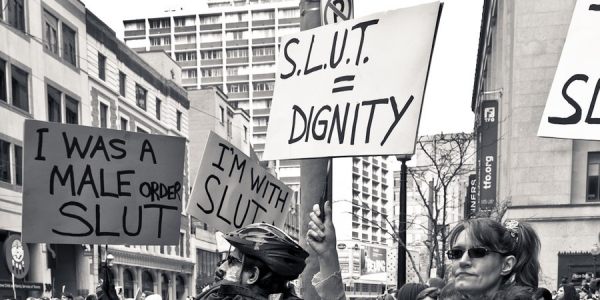Well, not too ridiculous for it to take place in the incidence of rape charges according to some courts. Earlier this year a Canadian Judge, Robert Dewar essentially told a rape victim that what she was wearing was sexually suggestive enough for him to have grounds to reduce her sex offender’s punishment. Dewar gave the man a two-year conditional sentence as opposed to the minimum three-year jail sentence for raping the woman along a darkened highway.
The backlash to this and other incidents of the same philosophy, has lead to the public protests known as SlutWalk. These walks have taken place all over the world and Melbourne is now about to have its own.
For many, Judge Robert Dewar’s decision can be interpreted as a judgement on the victim being less worthy of receiving justice because of her choice of clothing. Not only have people reacted to this as a shocking legal decision, it seems he has crossed an ethical boundary by making a value judgement on a person because of what she wears.
The argument being made against ‘slutty’ clothing, by Dewar and others, is that it sends a sexually inviting message.
Sure, what people wear does send a message. If you see a woman wearing a Metallica t-shirt she’s likely to be a fan of heavy metal music. Not always, but likely. If you see a woman in a burka she’s probably into Allah. If you see a woman at a bar with see-through leggings and a g-string, many would assume she’s into sex; it may not necessarily be the case but many would identify this clothing as having sexual connotations. Assumptions are one thing, but a judgment that any of these three individuals deserves fewer human rights than any other person, I think, is immoral.
The clothes one wears, whether they represent you well as a person or not, cannot alter basic treatments of decency and humanity. If we do that, soon we’ll be seeing this scenario:
“Yes your honour, that man assaulted me at the bar by punching me in the face”
“What were you wearing at the time?”
“An Ed Hardy t-shirt”
“I find the defendant NOT GUILTY!”
We may all be judgmental, yet it’s our ethical responsibility to account for that bias when important decisions are made and fellow human beings are to have their human rights upheld.







